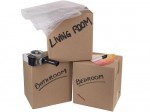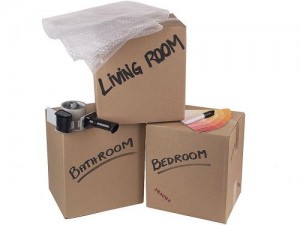New Home Construction Advice

It’s important to understand when buying new construction, that the builder’s agent is primarily focused on securing the best deal for the builder, often at the expense of the homebuyer. Their role is to persuade you to purchase their homes at the highest price with minimal concessions. In contrast, as your Exclusive Buyer Agent, Optima Properties is dedicated to leveling the playing field.
Our mission is to advocate for your best interests, ensuring that you receive the best possible terms for your home purchase. We are here to negotiate on your behalf, providing you with the knowledge and strategies necessary to navigate this complex process with confidence. While the builder’s agent is legally bound to represent the builder, we prioritize your needs and work tirelessly to make your home buying experience smooth and enjoyable.
Benefits of Using an Exclusive Buyer Agent for New Construction:
- Compare and evaluate builders’ reputations and history of their construction quality and service
- Help you compare and evaluate advantages and disadvantages of new construction homes vs. resale homes
- Provide information about the community and compare and contrast with other new construction communities
- Help buyer evaluate which options should be done by the developer during construction and which are more affordable to be done by an outside vendor post-closing.
- Assist with design and structural selections that will optimize future resale value and livability.
- Assist buyer evaluate the selection of a building lot and options. Lot location and certain options have a direct correlation to resale value.
- Truly negotiate on behalf of the buyer. Many builders are offering “free” options and upgrades, but some are also making additional price concessions.
- Review the Agreement of Sale (PA) prior to buyer signing. This is not a legal review (only an attorney can do that), but an experienced agent will be able to spot terms and conditions that are atypical and of potential concern to the buyer. The agent may then be able to negotiate terms and conditions that are more favorable to the buyer but still acceptable to the builder. Keep in mind most new construction contracts are written by attorneys that represent the developer and these contracts are therefore heavily weighted in favor of the builder.
- Recommend a real estate attorney for final contract, title commitment and to hold your escrow funds.
- A buyer’s agent serves as an extra set of ears as a witness at court or arbitration – When the builders sales representative is familiar with all rules, features and prices and it’s all new to buyer – it is good to have experienced person on buyer’s side listening with buyer and taking notes, a lot of information is verbalized in short period of time.
- Attend the signing of the Agreement of Sale
- Assist with the buyer’s financing and review financing paperwork. This is especially important if the builder is tying “free” options and upgrades to the use of a builder-affiliated lender.
- Check on the property during construction and keep a photo record at different stages.
- Be your leverage with the builder as problems arise during construction
- Keep everything in writing – Sometimes even the very nicest builder makes verbal promises that later become a point of contention. An experienced buyer’s agent is conditioned and trained to “put it in writing” even though at the time it doesn’t seem necessary.
- Arrange for a final inspection with a license building inspector and generate a “punch list” to be completed before final closing.
- Document and help resolve any issues with construction, financing, title, etc. throughout the process.
- Attend a pre-settlement walkthrough with the buyer to make sure that all items are satisfactorily completed or that a proper punch list is established to assure completion after settlement
- Obtain and review a preliminary HUD-1 settlement statement to be sure it is accurate and advise the buyer of the amount needed for settlement.
- Assist buyer with utilities, insurance, security and HOA requirements, decorators, service professionals, schools, et. al.
- Attend final walk-through and settlement with the buyer.
- A buyer’s agent will be there even after the home closes. It is routine for issues to arise during the first year of a new home. Site agents tend to forget a buyer’s name after the contract is signed.
But it’s important to remember the process of working with a builder is different than buying from a homeowner. And, while builders typically have sales agents on-site, having your own agent helps make sure you have proper representation throughout your home buying journey.













 Moving into a new house is exciting, but the list of “to dos” can be overwhelming. You not only have to pack and prep the new house, but you have to tie up all the loose ends at the old place. Here are 10 tasks that are easily overlooked when moving into a new home – if you take care of these, you’ll have a leg up on moving day.
Moving into a new house is exciting, but the list of “to dos” can be overwhelming. You not only have to pack and prep the new house, but you have to tie up all the loose ends at the old place. Here are 10 tasks that are easily overlooked when moving into a new home – if you take care of these, you’ll have a leg up on moving day. Kim N. Bregman
Kim N. Bregman